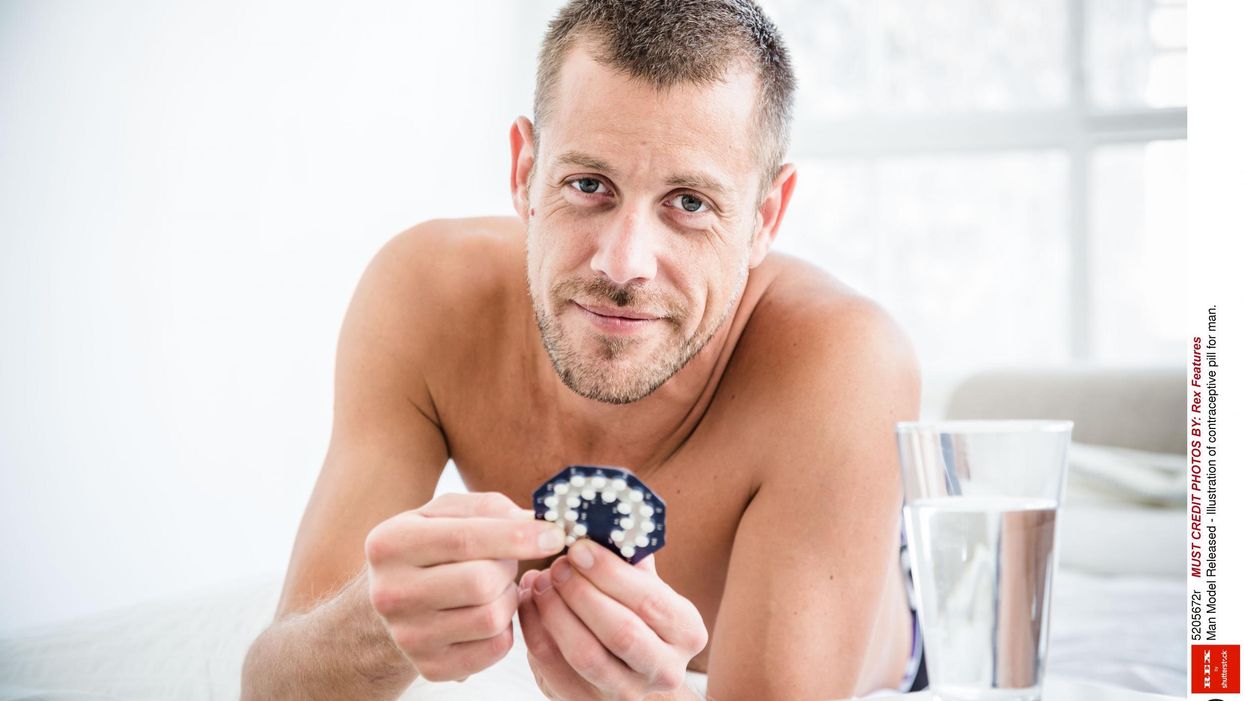News
Harriet Marsden
Oct 31, 2016

Picture: VOISIN/PHANIE/REX/Shutterstock
VOISIN/PHANIE/REX/Shutterstock
This week's insulting news for women: the trial for a male contraceptive jab has been halted early due to 'side effects'.
The jab, which has been proven 96 per cent effective, contains progestogen (impedes production of sperm by targeting the pituitary gland) and testosterone (that counterbalances any resulting reduction in male hormones).
It's considered 96 per cent effective - that's about on par with a condom.
But according to reports, 20 of the men in the study dropped out due to suffering from adverse reactions to the injection, including depression, acne and heightened libido.
Depression is a severe side effect and should be treated as such: seriously, and with great caution. High suicide rates and stigmatisation of mental illness in men are also very real and extremely troubling issues.
However, a recent report on female birth control, published at the end of September 2016, studied the little-explored link between hormonal contraception and depression.
It found that between 20 and 30 per cent of women taking the pill received medical assistance for depression. That study was largely ignored.
This study, however, was terminated because 3 per cent of the men showed signs of depression
Let's review the side effects noted in the study, according to the NHS summary:
- Acne (45%)
- Mood / emotional disorder (18%)
- A lower sperm count one year after stopping the injection (5%)
- Increased interest in sex (38%)
- Injection site pain (23%)
- Muscle aches (16%)
Researchers also said that nearly 40 per cent of the symptoms the men complained about (e.g. muscle pain, increased libido and acne) were unrelated to the injections.
Let's compare that to the side effects for the contraceptive injection available to women, according to the NHS:
- Mood disorder
- Acne
- Weight gain
- Loss of sex drive
- Breast pain
- Thinning of the bones
- Infection at the side of injection (small risk)
Sound familiar?
Let's review the side effects for women's contraceptive pills (the combined pill and the mini pill, also known as the progesterone-only pill) according to the relevant NHS page guides:
- Irregular periods (e.g. heavier, more frequent)
- Acne
- Depression
- Breast tenderness and growth
- Spotting (e.g. regular vaginal bleeding)
- Nausea and vomiting
- An increased / decreased sex drive
- Headache and migraine
- Weight gain
- Stomach upset
Rare but possible side effects:
- Breast cancer (although research continues into the link, it suggests that women who take any hormonal contraception have a slightly increased risk of breast cancer)
- Cervical cancer
- A rare form of liver cancer
- Ovarian cysts
- Thrombosis
- Blood clots
- Decreased fertility
Both the severity and rate of occurrence of side effects between the male and female contraceptive options have been noted as markedly distinct.
Elisabeth Lloyd, Kinsey Institute scholar and professor of biology at Indiana University Bloomington, said to CNN:
“These risks of fertility damage [to the men] are not fatal risks like the women endure with their birth control."
You have to compare what women are doing in terms of taking hormones with what men are doing in terms of taking hormones. Are they taking their life in their hands when they take the hormones? Women are. And that needs to be put right up in front when considering the risk.
Many have also highlighted the ridiculousness of the delay: the female contraceptive pill has been available since the 1960s. Medical advancement and improvement to testing methods has been exponential since then.
The male hormonal reproductive system is also significantly less complex than the female, and chemical control therefore considerd less likely to cause hormonal upheaval or longterm damage.
Vasectomies are at an all time low, condoms are fairly unpopular among the population, and the withdrawal method isn't even considered an appropriately safe method of contraception by most medical professionals.
So the need for a male contraceptive option seems more urgent than ever.
People took to Twitter to vent their outrage over the irony:
More: Yes, contraceptives have side effects – and it’s time for men to put up with them too
More: Male contraceptive jab works as well as the pill - and can even increase libido
Top 100
The Conversation (0)













